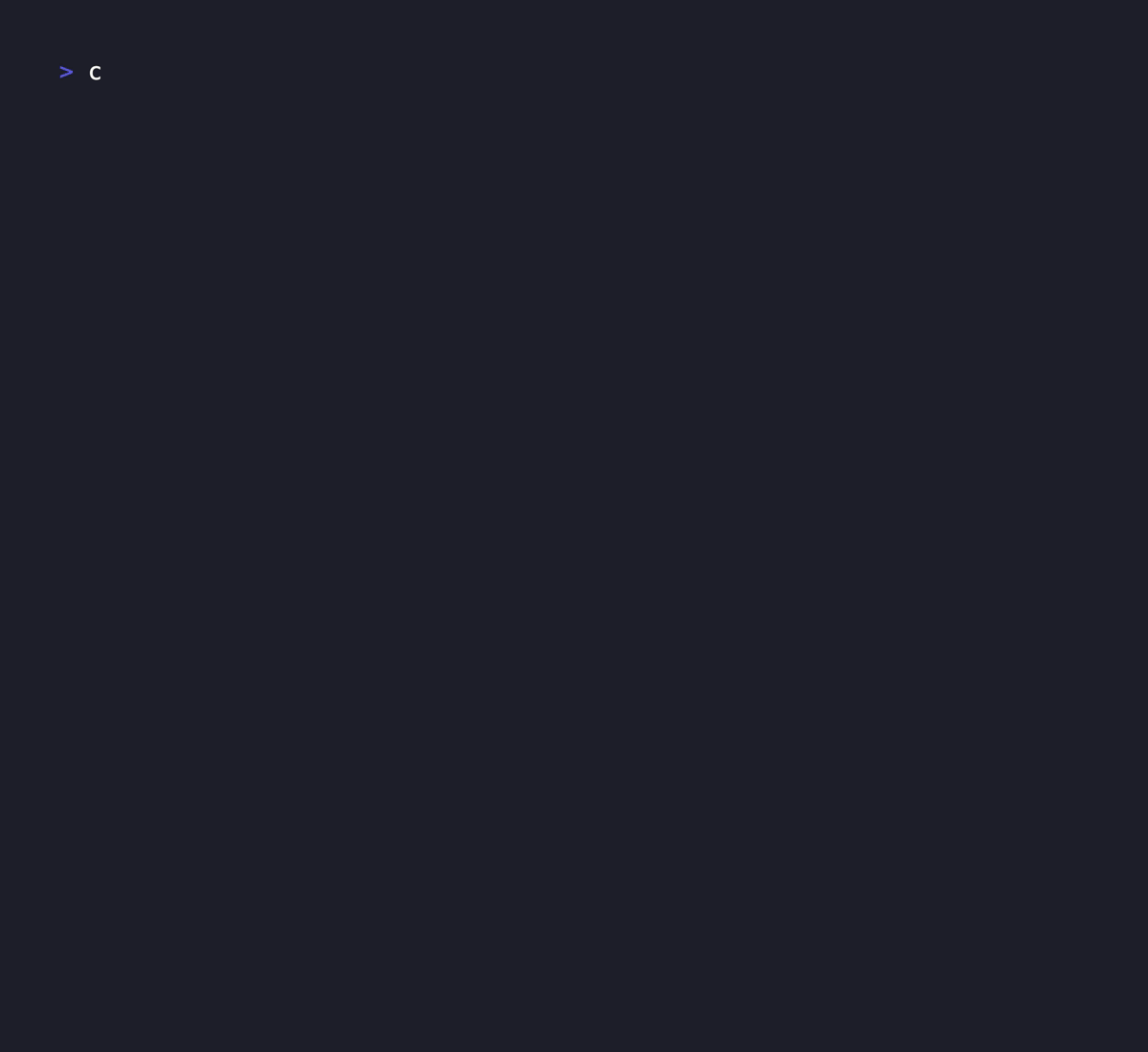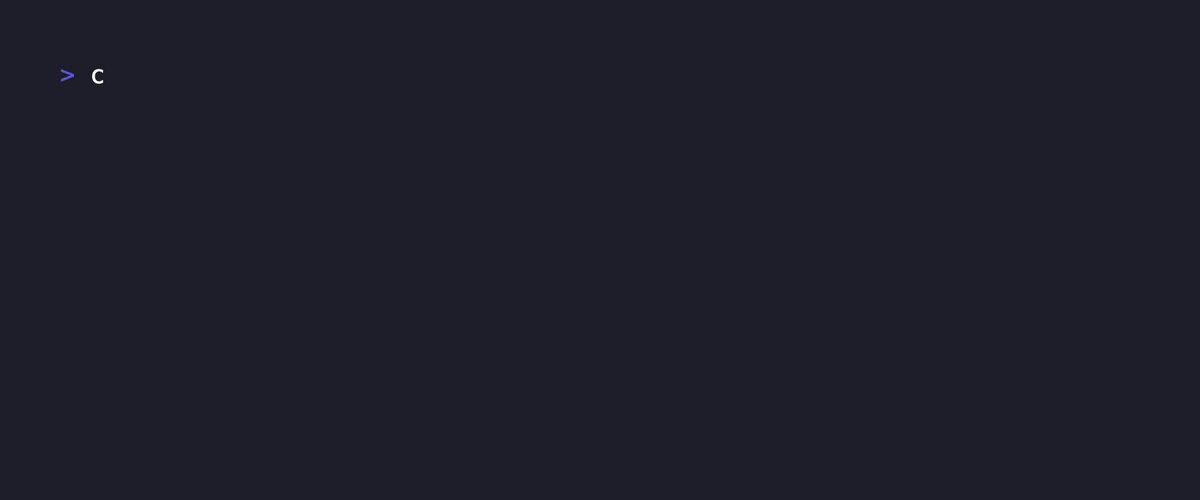✨ Fetches your schedule (Google Calendar) and outputs it as a single LLM prompt, with an optional MCP server mode.
Documentation
*⚠️ This project is still experimental. Features may change without notice. Use with caution! ⚠️*
cal2prompt
cal2prompt is a command-line tool that fetches your schedule (e.g., from Google Calendar) and converts it into a custom prompt or text snippet via a template engine. It can output directly to your stdout, or run as an experimental MCP (Model Context Protocol) server.
cal2prompt uses the Google Calendar API version 3.
*CLI Example*

*Model Context Protocol(MCP) Example(experimental)*

Features
- 🚀 Google Calendar Integration
Utilizes the Google Calendar API v3 to fetch your schedule.
- 📄 Flexible LLM Prompt Customization with a Template Engine
Customize the generated prompts using the Jinja2 template engine.
- ⚡️ Blazing fast
High-speed Processing Powered by the Rust Ecosystem.
- 🔧 Experimental MCP Mode
Run cal2prompt as a Model Context Protocol server.
Installation
Brew (MacOS)
brew install shuntaka9576/tap/cal2promptCargo (git)
git clone https://github.com/shuntaka9576/cal2prompt
cd cal2prompt
cargo install --path .Usage
$ cal2prompt --help
✨ Fetches your schedule (e.g., from Google Calendar) and converts it into a single LLM prompt. It can also run as an MCP (Model Context Protocol) server.
Usage: cal2prompt [OPTIONS] [COMMAND]
Commands:
mcp Launch cal2prompt as an MCP server (experimental).
help Print this message or the help of the given subcommand(s)
Options:
--since Start date (YYYY-MM-DD). Requires --until.
--until End date (YYYY-MM-DD). Requires --since.
--today Fetch events for today only.
--this-week Fetch events for the current week (Mon-Sun).
--this-month Fetch events for the current month (1st - end).
--next-week Fetch events for the upcoming week (Mon-Sun).
-h, --help Print help
-V, --version Print versionInitial setup
1. Setup Google OAuth2.0 Client
We use OAuth2 for authenticating with your Google account. After authentication, the generated token is stored in the oauth file located in your platform’s data directory (e.g., ~/.local/share/cal2prompt/oauth on Linux). When you launch cal2prompt for the first time, the authentication process will begin automatically—simply follow the on-screen instructions.
Currently, you must use your own Calendar API token. The Calendar API token is only granted to a limited number of users and requires Google’s approval. Even if I, as the project owner, were to provide a Google-approved client, there would inevitably be security risks. Therefore, you need to create and manage your own token.
Please follow the steps in docs/setup-oauth to create your own Google “project” and obtain an OAuth token.
2. Setup configuration
Configuration is written in Lua. Below is an example of the configuration. You can separate public and private information into separate files if you prefer—simply customize it to suit your needs.
Create ~/.config/cal2prompt/secrets.lua and add the following contents. The file name can be any name as long as it matches the require statement in the config.lua mentioned later.
Please specify the clientID, clientSecret, and Calendar ID you created earlier. You can find the Calendar ID in the Google Calendar web UI.
local M = {}
M.google = {
clientID = "***.apps.googleusercontent.com",
clientSecret = "***",
calendarIDs = {
"example@gmail.com"
},
}
return MCreate ~/.config/cal2prompt/config.lua and add the following contents:
local cal2prompt = require("cal2prompt") -- builtin module
local os = require("os") -- stdlib
local secrets = require("secrets")
return {
settings = {
-- see https://en.wikipedia.org/wiki/List_of_tz_database_time_zones
-- TZ = "Etc/UTC",
TZ = "Asia/Tokyo",
-- TZ = "America/Los_Angeles"
-- TZ - "Asia/Shanghai"
},
source = {
google = {
oauth2 = {
clientID = secrets.google.clientID,
clientSecret = secrets.google.clientSecret,
},
calendar = {
getEvents = {
calendarIDs = secrets.google.calendarIDs,
},
},
},
},
output = {
-- template = cal2prompt.template.google.standard
template = [[
Here is your schedule summary. Please find the details below:
{% for day in days %}
## Date: {{ day.date }}
--------------------------------------
### All-Day Events:
{% if day.all_day_events|length == 0 %}
(No all-day events)
{% else %}
{% for ev in day.all_day_events %}
- {{ ev.summary }}
- (All Day)
- Location: {{ ev.location or "N/A" }}
- Description: {{ ev.description or "No description." }}
- Attendees:
{% if ev.attendees|length > 0 %}
{% for a in ev.attendees %}
- {{ a }}
{% endfor %}
{% else %}
- (No attendees)
{% endif %}
{% endfor %}
{% endif %}
### Timed Events:
{% if day.timed_events|length == 0 %}
(No timed events)
{% else %}
{% for ev in day.timed_events %}
- {{ ev.summary }}
- Start: {{ ev.start }}
- End: {{ ev.end }}
- Location: {{ ev.location or "N/A" }}
- Description: {{ ev.description or "No description." }}
- Attendees:
{% if ev.attendees|length > 0 %}
{% for a in ev.attendees %}
- {{ a }}
{% endfor %}
{% else %}
- (No attendees)
{% endif %}
{% endfor %}
{% endif %}
{% endfor %}
]],
},
}3. CLI Authentication
cal2prompt executes the OAuth 2.0 flow to obtain authentication credentials. For detailed step-by-step flow instructions, please refer to docs/setup-cli-auth
cal2promptIntegrating Claude Desktop with MCP
Please add the following configuration to ~/Library/Application\ Support/Claude/claude_desktop_config.json:
- For
mcpServers.cal2prompt.command: You must specify the full path obtained by runningwhich cal2prompt. - For
mcpServers.cal2prompt.env.HOME: Since Claude Desktop may not inherit the HOME environment variable, so it needs to be set explicitly.
{
"mcpServers": {
"cal2prompt": {
"command": "/Users/username/.cargo/bin/cal2prompt",
"args": ["mcp"],
"env": {
"HOME": "/Users/username"
}
}
}
}Configuration
Config Options
| Variable Name | Required | Description | Default Value |
|---|---|---|---|
settings.TZ | true | IANA time zone format. (e.g. America/Los_Angeles Asia/Tokyo) | UTC |
settings.oauthFilePath | false | Path where OAuth2.0 tokens are temporarily stored. Typically, users do not need to change this unless they have a custom setup. | ~/.local/share/cal2prompt/oauth |
source.google.oauth2.clientID | true | Your Google OAuth2 Client ID used for authenticating with the Google Calendar API. | *(No default; must be specified)* |
source.google.oauth2.clientSecret | true | Your Google OAuth2 Client Secret used for authenticating with the Google Calendar API. | *(No default; must be specified)* |
source.google.oauth2.scopes | false | Scopes to grant to Google OAuth 2.0 client. Please refer to here for the types of scopes. | [https://www.googleapis.com/auth/calendar.events] |
source.google.oauth2.redirectURL | false | The OAuth2 callback URL to which Google will send responses. | "http://127.0.0.1:9004" |
source.google.calendar.getEvents.calendarIDs | true | A list of one or more Google Calendar IDs from which cal2prompt will fetch events. Each ID can typically be found in your Google Calendar settings. If multiple IDs are provided, events from each calendar will be fetched and combined in chronological order. | *(No default; must be specified)* |
output.template | true | A string that defines how the fetched calendar data should be formatted/output. | *(No default; must be specified)* |
experimental.mcp.insertCalendarEvent.calendarID | false | The ID of the Google Calendar to which new events will be inserted when using the experimental MCP feature. | None |
Environment
| Variable Name | Description | Default Value |
|---|---|---|
CAL2_PROMPT_CONFIG_FILE_PATH | Path to a custom Lua configuration file if you do not want to use the default. | ~/.config/cal2prompt/config.lua |
Similar MCP
Based on tags & features
Trending MCP
Most active this week